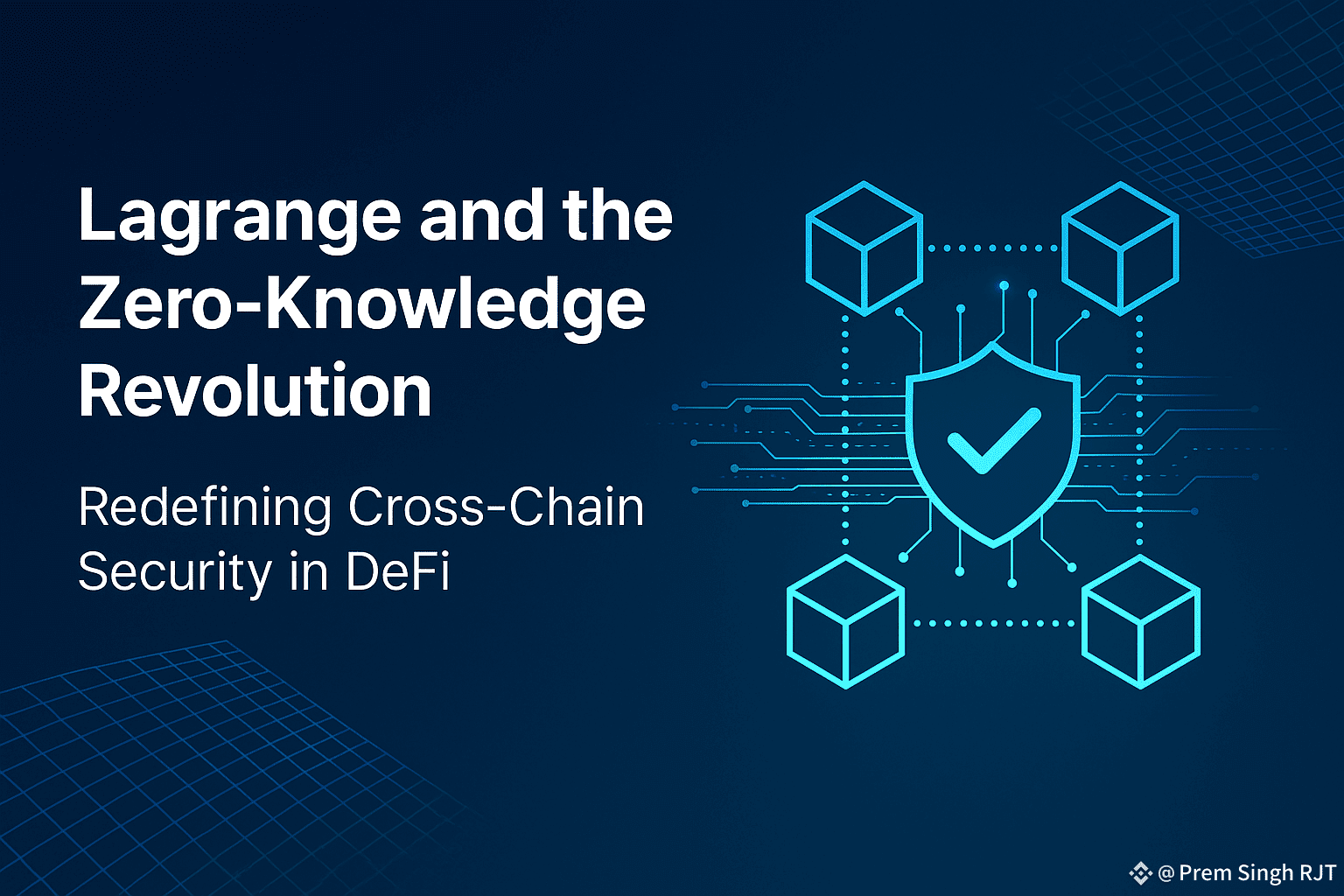The decentralized finance (DeFi) industry is advancing at breakneck speed, yet one obstacle continues to stifle its full potential: secure cross-chain interoperability. With hundreds of blockchains powering diverse ecosystems, the ability to transfer assets, execute contracts, and share data seamlessly across networks has become both a necessity—and a vulnerability.
Traditional bridges—built on custodians, relayers, or multi-sig validators—have repeatedly failed the test of security, leading to multi-billion-dollar exploits. Bridge hacks remain among the largest breaches in blockchain history.

Lagrange offers a breakthrough. By harnessing the cryptographic strength of zero-knowledge proofs (zk-SNARKs), it removes the need for trust in intermediaries and redefines the standard for secure, scalable cross-chain communication. This is not an incremental upgrade—it is a paradigm shift.
The Problem: Why Legacy Cross-Chain Models Fail
Cross-chain bridges often replicate the very flaws of centralized systems they were meant to disrupt. Key issues include:
Third-Party Dependence – Reliance on intermediaries undermines decentralization.
Latency in Confirmations – Multi-step processes create frustrating delays.
Fraud Vulnerabilities – Without cryptographic guarantees, malicious actors exploit weak links.
Erosion of Trust – Opaque verification discourages long-term adoption.
In short, legacy systems ask users to trust assumptions instead of verifying truths—a dangerous mismatch in high-value financial ecosystems.
Lagrange’s Innovation: zk-SNARKs as the Security Backbone
Lagrange introduces a trust-minimized verification framework where zero-knowledge proofs validate every cross-chain transaction. Its zk-SNARK integration delivers:
Cryptographic Certainty – Every operation is backed by mathematical proof of authenticity.
Real-Time Validation – Near-instant confirmations enable faster, safer interoperability.
Privacy Preservation – Sensitive data stays private yet provable, vital for institutions.
Scalability – Proof efficiency reduces overhead, supporting high throughput.
Think of Lagrange as a real-time DNA test for every cross-chain transaction—accurate, tamper-proof, and nearly instant.
Why This Matters for DeFi
The impact of Lagrange’s model is transformative:
Security as Standard – Platforms without zk-verification will quickly appear outdated and unsafe.
User Confidence Restored – Cryptographically validated transactions drive capital inflows.
Ecosystem Evolution – Adoption of zk-security pushes DeFi toward a safer, more reliable baseline.
Just as HTTPS became mandatory for the web, zk-verification is poised to become the non-negotiable foundation for DeFi.
Practical Use Cases
Lagrange’s zk framework unlocks high-value applications far beyond simple transfers:
Cross-Chain Swaps – Verifiable authenticity eliminates counterparty risk.
Decentralized Insurance – zk-verified conditions trigger payouts securely.
Lending & Borrowing – Assets collateralized across chains without custodians.
Enterprise-Grade Solutions – Institutions gain compliance-ready, secure cross-chain rails.
This architecture transforms blockchains from isolated islands into interconnected financial highways.
Competitive Positioning: Why Lagrange Leads
Unlike projects that bolt zero-knowledge on as an afterthought, Lagrange embeds zk-SNARKs as its foundation. This ensures:
Reduced Attack Surfaces – Intermediaries, the most common exploit vector, are eliminated.
Future-Proofing DeFi – As regulation and institutional capital grow, only verifiable security will scale.
Lagrange isn’t just solving today’s problems—it’s defining tomorrow’s cross-chain economy.
The Road Ahead
Zero-knowledge is moving from research into mainstream deployment. With Lagrange, expect:
ZK Verification as Default – Within 2–3 years, unverified bridges will be considered too risky.
Composability Across Chains – dApps operate seamlessly across networks with zk-rails.
Institutional Liquidity Flows – Enterprises embrace zk-secured ecosystems, unlocking trillions in value.
Lagrange is not following this trend—it is driving it forward.
Conclusion: The Dawn of Trustless Cross-Chain Finance
Cross-chain interoperability has long been DeFi’s greatest promise—and its greatest weakness. Lagrange’s integration of zk-SNARKs transforms fragile bridges into cryptographically secure highways, built on proofs instead of assumptions.
This shift redefines trust in decentralized systems. Users no longer depend on intermediaries—they rely on mathematical certainty at scale and speed.
Those who ignore this transformation risk irrelevance. Those who align with Lagrange position themselves at the forefront of a new era: one where security, scalability, and trustlessness converge to power the next generation of DeFi.
✨ Mindshare Takeaway: Zero-knowledge is not an add-on—it is the bedrock of next-generation DeFi security. With Lagrange leading the charge, the industry is entering an era where cross-chain transactions are not only possible—but provably safe.

